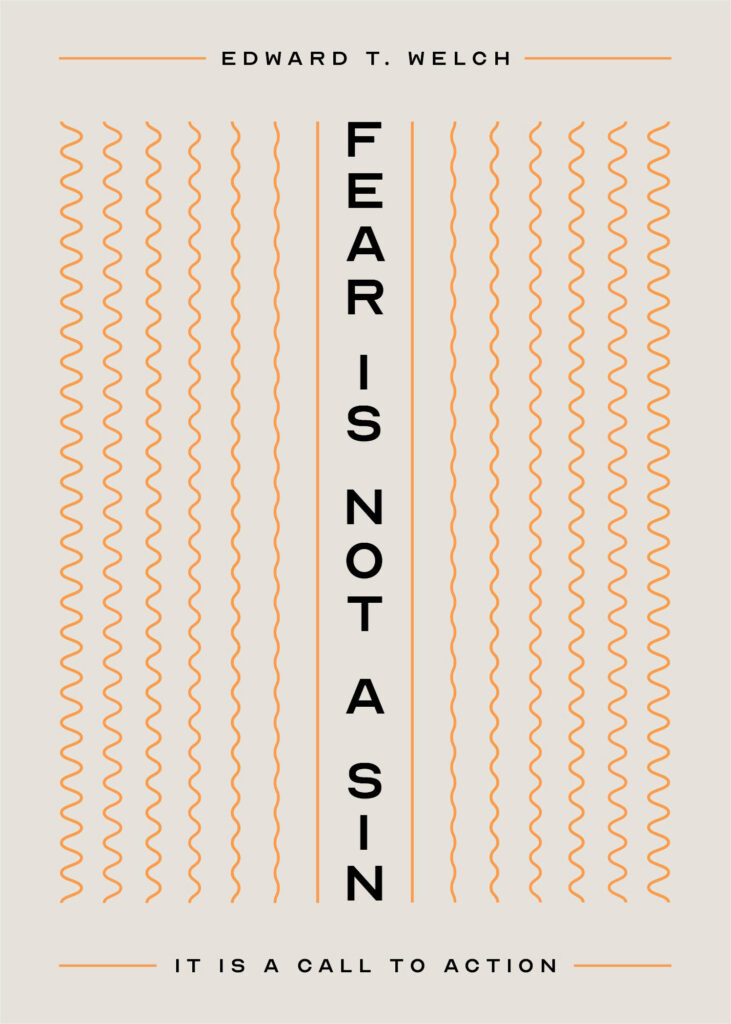This seems provocative—fear is not a sin—but it is not intended that way. Instead, it’s a natural way to understand Scripture. God is pleased to give us both his words and his heart, his words and the tone of his words. It is important to understand both. His words can be wrapped in his grief or his anger, yet even then he always invites us to come to him. His words to the fearful come from a heart of paternal love and affection, and they are precious.
If all you remember is the command, “do not fear,” which appears, in some form, hundreds of times in Scripture, then the words might be heard as though a judge just gave you a warning. “This is against the law. It is sin. Stop doing it now.” Then you set out to obey. You try to stop being afraid. You tell your body to resist being on high alert, but it doesn’t work. You turn to the Apostle Paul’s exhortation to think about things that are “true,” “pure,” and “lovely” (Philippians 4:8), but there is always something from the day that redirects your attention—a difficult relationship, a sick family member, a review at work, a bank account that is not equipped for those inevitable unforeseen expenses.
You keep asking the Lord to help you stop being anxious, but nothing seems to change. How many times can you turn to the Lord when your sin seems unchanged? At some point you believe you are left on your own to sort it out. And that is a clue that the process has been misguided. Anything that ends with you talking less to the Lord is clearly the wrong path. So you look more carefully at God’s words to you.
His words are not those he speaks to habitual sinners. Jesus says, “Don’t be afraid, little flock” (Luke 12:32). Jesus takes you for a walk and after showing you his Father’s care for creation he says, “Are you not of more value than they?” (Matthew 6:26). How many sins are always met with the promise, “I am with you” (Philippians 4:4, NIV)? The psalms are filled with fears, and they are not rebuked. They say, “When I am afraid …” (Psalm 56:3). Fear is similar to grief in that it is a regular feature of daily life. With this in mind, notice how Jesus says to a grieving woman, “Don’t cry” (Luke 7:13), and it is clearly intended as a comfort, not a command.
Jesus knows that you are a limited creature who has control over very little, and there are threats to life and love at every turn. He responds with compassion and assurance—he is close, and he acts on your behalf. He certainly will not forget you. In response, you find words for your fears and pour them out to him. That is what children do. They find their father and tell him about their fears, certain that he will never minimize or ignore those fears. Of course, we can also find sins in the midst of our fears. Here is one place to look: we turn inward, as though we were orphans, rather than call out to the one who loves us. A strange response, indeed, given that our fears remind us that we need help that is more than any human being can offer, but we all do it. When we notice we have gone astray, we simply turn back toward God, find words for our fears, and learn how to have a conversation with God about them.
The skill in this conversation can be found in many of the psalms. For example, Psalm 22 begins with the well-known cry of Jesus, “My God, why have you forsaken me?” Then it goes back and forth, between our cries and knowledge of Jesus, back and forth, back and forth. We keep at this until it finally reaches a place of rest in Christ—“he has done it”—and then the next day we start again.
Fear and grief are part of most every day. We do not apologize for them; we speak them. Then Jesus immediately responds with his most intimate words and promises. Fear and anxiety, in turns out, are first steps to knowing God’s kingly authority over all things and his heart of compassion for you.
Fear Is Not a Sin
When life takes a turn for the worse, our natural response is fear and anxiety, even though God commands his people many times in Scripture to not be afraid. However, as bestselling author and biblical counselor Edward T. Welch explains, those commands do not mean that our fears are inherently sinful. Instead, they are an invitation from God to go to him with our troubles.







